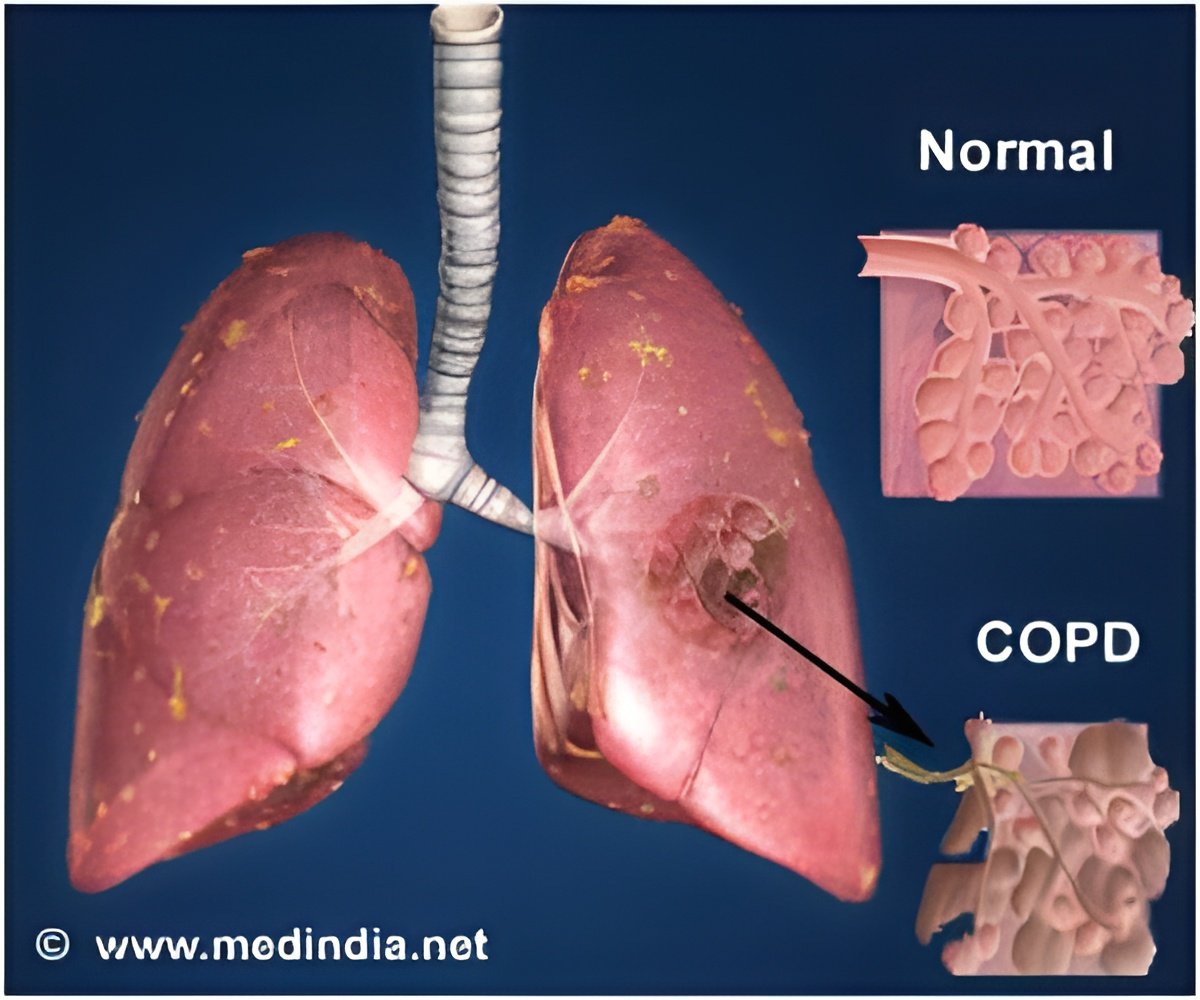Clinicians struggling with the pharmacologic management of COPD in patients complaining of exercise intolerance or dyspnea now have new guidance, reports a new study.

‘Pharmacologic management of COPD is focused on improving patients' quality of life while decreasing the frequency of exacerbations. ’
Read More..




In this new clinical practice guideline, an expert panel addressed six "emerging questions around COPD management that were not covered in the previous guideline published in 2011," noted Shawn Aaron, MD, co-chair of the guideline committee and professor/senior scientist at The Ottawa Hospital Research Institute and The University of Ottawa. Read More..
"The panel's priority was to formulate questions that were of significant clinical importance to both health care providers and patients," added Linda Nici, MD, co-chair of the guideline committee and professor of medicine at Brown University and Chief of Pulmonary/Critical Care at the Providence VAMC. "This clinical practice guideline is the most rigorous, outcome-driven distillation of the scientific literature to date."
The following is a summary of the recommendations, which were formulated using the Grading of Recommendations, Assessment, Development, and Evaluation approach (GRADE):
- Among patients with COPD who complain of dyspnea or exercise intolerance, we recommend LABA/LAMA combination therapy over LABA or LAMA monotherapy (strong recommendation, moderate certainty evidence).
- Among patients with COPD who complain of dyspnea or exercise intolerance despite dual therapy with a LABA/LAMA, we suggest the use of triple therapy with ICS/LABA/LAMA compared to dual therapy with a LABA/ LAMA in those patients with a history of 1 or more exacerbations in the past year requiring antibiotics or oral steroids or hospitalization (conditional recommendation, moderate certainty evidence).
- In patients with COPD who are taking triple therapy (ICS/LABA/LAMA), we suggest that the ICS can be withdrawn if the patient has had no exacerbations in the past year (conditional recommendation, moderate certainty evidence).
- We do not make a recommendation for or against ICS as an additive therapy to long-acting bronchodilators in patients with COPD and blood eosinophilia, except for those patients with a history of blood eosinophilia and one or more exacerbations in the past year in whom we suggest ICS as an additive therapy (conditional recommendation, moderate certainty evidence).
- In COPD patients with a history of severe and frequent exacerbations despite otherwise optimal therapy, we suggest against using maintenance oral corticosteroid therapy (conditional recommendation, low certainty evidence).
- In individuals with COPD, who experience advanced refractory dyspnea despite otherwise optimal therapy, we suggest that opioid-based therapy be considered for dyspnea management within a personalized shared decision-making approach (conditional recommendation, very low certainty evidence).
Contributors to the guideline included expert clinicians and researchers with experience in COPD.
The ATS has published nearly 20 clinical practice guidelines on various conditions, ranging from allergy and asthma to TB and other pulmonary infections. For ATS guideline implementation tools and derivatives, go here.
Advertisement













